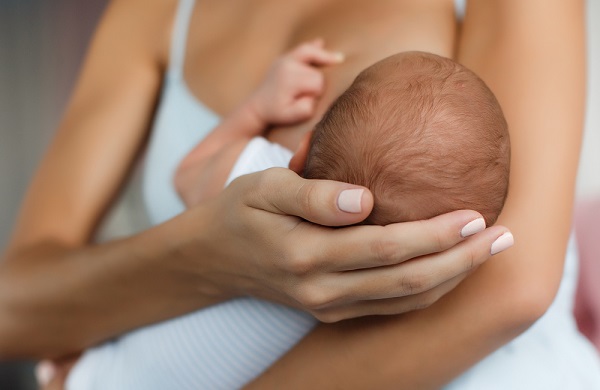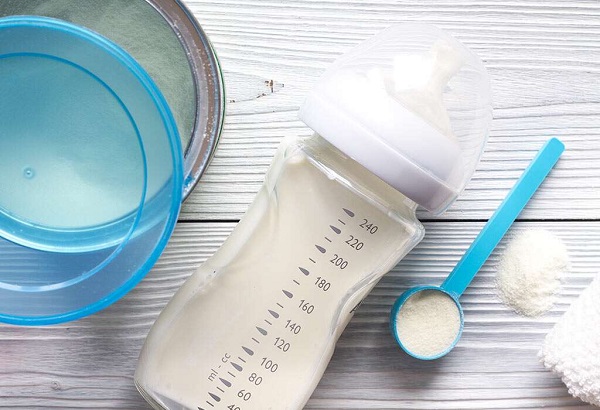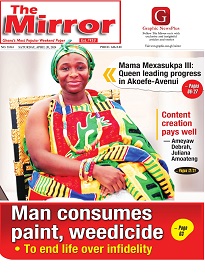The Mirror's Health , Lifestyle and Fashion

Should HIV positive mothers breastfeed?
Dear Linda, Breastfeeding is one of the well-known modalities of transmission of diseases such as hepatitis B and HIV to newborns.
Advertisement
Last week, I explained what could be done for newborns to hepatitis B positive mothers; that with the hepatitis B vaccine and immunoglobulins, babies could be breastfed without contracting it from the mother.
The situation is a bit different for HIV positive mothers where it is estimated that breastfeeding carries the risk of HIV transmission in upwards of 25 per cent.
It is believed that about one-third of all HIV positive children throughout the world were infected through breastfeeding.
The advantages of breastfeeding notwithstanding, the decision to breastfeed by an HIV positive mother must be weighed against the risk of transmission of the virus to the child.
In many parts of the world, breastfeeding is the only source of nutrition for newborns and babies.
Unfortunately, financial and cultural factors often dictate which method of feeding is used.
The World Health Organisation (WHO) recommends breastfeeding for all infants, no matter where they are born. These recommendations are based on the unique nutritional and bioactive properties found in breast milk which protect infants from infectious diseases such as diarrhoea and respiratory illnesses.
In 1985 when HIV was first discovered in breast milk, it presented the health community and HIV-positive mothers in developing countries with a difficult dilemma: risk HIV transmission through breastfeeding or greatly increase the likelihood of infant sickness and death with infant formula and other breast milk substitutes.
About 200,000 infants in developing countries can become infected with HIV through breast milk when the mother is not on antiretroviral treatment.
At the same time, over 10 million children under five years die each year from mostly preventable conditions and diseases, including malnutrition, pneumonia, neonatal causes and diarrhoea. Breastfed children are less likely to die from any of these conditions.
Completely avoiding breastfeeding is not a safe or feasible option for many HIV-positive mothers in resource-poor areas despite challenges with access to medicines for HIV (antiretroviral) treatment.
Although commercial infant formula is the recommended infant feeding option for HIV-positive mothers in developed countries, mothers in poor countries face issues such as the cost of infant formula, lack of access to safe water, poor sanitary living conditions, increased risks to their children from common childhood illnesses, inadequate health care and socio-cultural factors.
Early childhood illnesses such as diarrhoea and pneumonia—which pose less risk to children in the developed world—are far more severe and life-threatening to children in our parts of the world.
In one study, formula feeding was associated with a 14-fold increase in diarrhoea-associated deaths for all infants and a 25-fold increased risk in infants less than two months old.
A study in Ghana, India and Peru also found out that non-breastfed infants had a 10-fold higher risk of dying as compared to predominantly breastfed infants.
With regard to breastfeeding by HIV-positive mothers, WHO recommends that they breastfeed exclusively for six months unless replacement feeding is acceptable, feasible, affordable, sustainable and safe.

In many poor countries, however, there are barriers to formula-feeding
The WHO also recommends continued breastfeeding after six months until it is economically viable to stop.
Various studies have been done to examine the effects of breastfeeding for a longer period and the recommendation is for an even longer period of breastfeeding for those in poor countries for HIV-positive mothers.
In the developed world, mothers with HIV usually forgo breastfeeding and formula-feed their infants. This is feasible because of the free supply of the formula, good social support services, high literacy rate, constant supply of good drinking water and good environmental sanitation.
In many poor countries, however, there are barriers to formula-feeding. Sanitation is poor, and clean water to mix formula is often not available. Many families cannot afford infant formula.
Mothers need counselling and support from trained and sensitive health workers, something that is not universally available in poorer countries. The unfortunate truth is that mothers who know that they are HIV-positive but cannot obtain or afford sufficient substitute milk will probably decide to breastfeed their babies.
Mothers who can provide an adequate safe alternative such as commercial formula will probably decide not to breastfeed.
Regardless of the decision, the HIV-positive mother needs to be educated as to the risks and benefits of breastfeeding. She should be counselled as to any resources that may be available that will allow her to choose to or not to breastfeed.
In the light of new data and improved access to antiretroviral therapy to reduce a mother's viral load levels to undetectable, thereby making it impossible for her to transmit the virus to her baby, a mother with HIV needs to receive full antiretroviral therapy for approximately three months before delivery of her baby and adhere to her medication with no breaks.

With improved accessibility to antiretroviral therapy, it is even better for poor HIV-positive mothers to breastfeed
If she will be breastfeeding, she should seek help to exclusively breastfeed her baby for the first six months of life, with frequent follow-up and prompt treatment of any breastfeeding or breast problems and she should wean gradually when she is ready. The baby should receive four to six weeks of antiretroviral prophylaxis after birth.
So looking at the pros and cons, especially with improved accessibility to antiretroviral therapy, it is even better for poor HIV-positive mothers to breastfeed exclusively as against not breastfeeding where the children tend to die from diarrhoea, malnutrition, pneumonia, etc.
Well-to-do mothers living with HIV can decide not to breastfeed because they can afford formula feeds.
The choice must be exercised with all these points in mind.
[email protected]
A member of Paediatric Society of Ghana.




